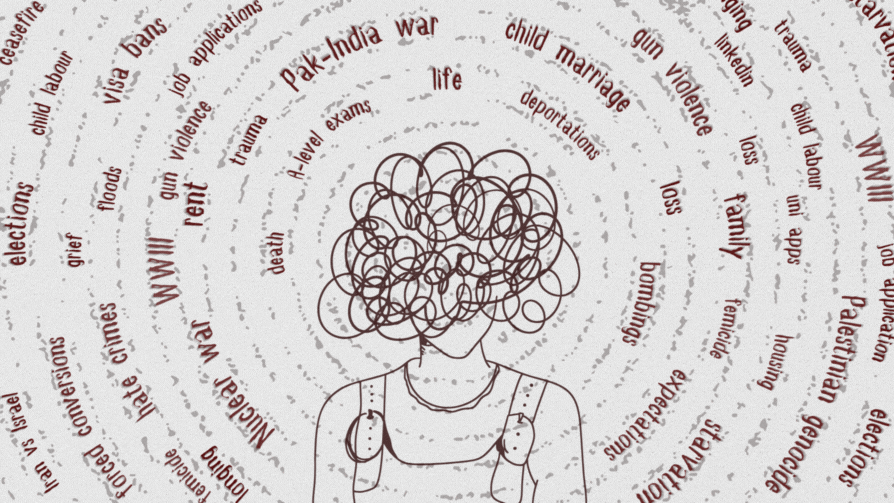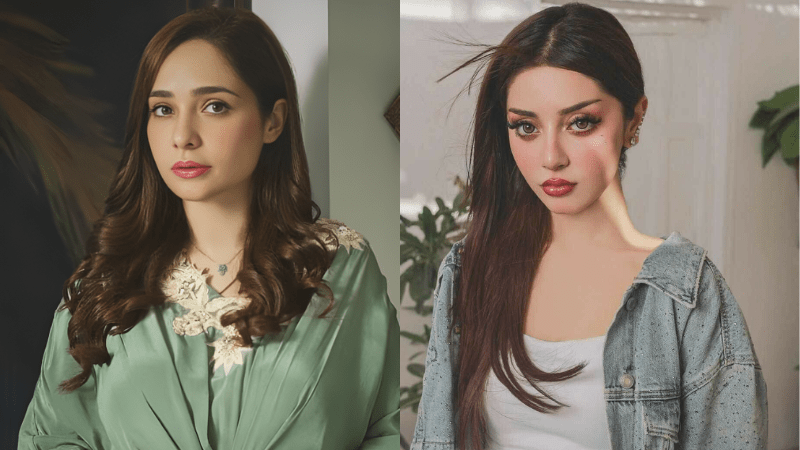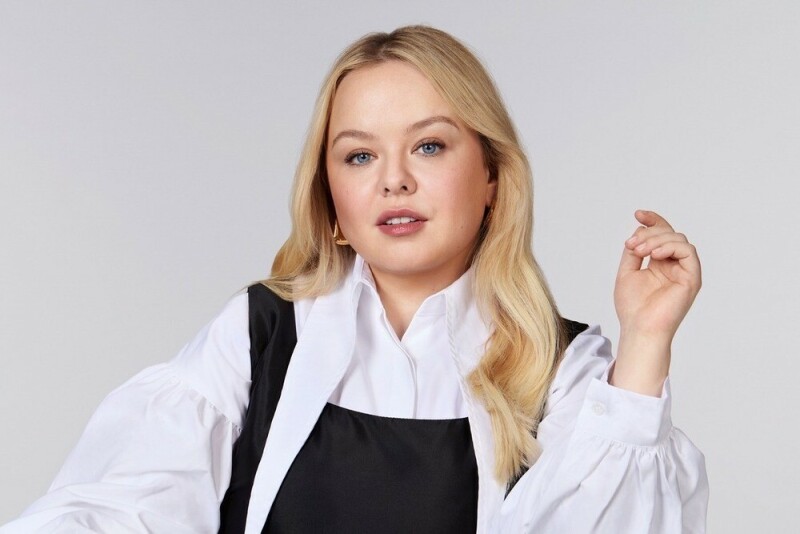Removing the mystery from the ‘M’ in Menopause by talking about it
Dear reader, you may have been in a lot of rooms and you may have talked to a lot of people but can you say that you’ve been in a room full of people to openly discuss menopause outside of an academic setting? I can.
If you think about it, a 24-year-old going to attend a talk on menopause sounds a bit out of place but that is exactly the point. We think that because something is not relevant to us right now, we don’t need to talk about it or get more information on it. And that’s how things get swept under the carpet.
Say the M Word: Menopause, a session held at the Women of the World Festival at the Beach Luxury in Karachi on Sunday, made us say the ‘M word’ and acknowledge it kindly, instead of calling on it the way you would Bloody Mary. After a short breathing exercise in order to ground ourselves and “remember where we are”, the two moderators, Dr Tabinda Sarosh and Madiha Latif, welcomed us into the circle of chairs. The talk ended up being an interactive exchange where we discussed the M words i.e. menopause and menstruation and why it was that the former is shrouded in so much mystery.

Dr Sarosh asked us what the word for it is in Urdu only to be met with deafening silence. The audience consisted of women from three different generations and none of us knew. Sunyaas, Dr Sarosh finally said, explaining that when we break it up, sun in Urdu means year and yaas comes from mayoosi, referring to hopelessness or sadness. The year/age of hopelessness. I felt quite stung by that and agreed when Dr Sarosh said, “That’s how we in our society define menopause. We need new names, new terminology for the M word.”
Next, we delved deeper into the language surrounding menstruation and menopause. The audience came up with phrases like “she has passed her prime”, “she needs to get married quickly, have children fast” and “she’s too emotional”. Dr Sarosh pointed out that the Urdu term sathya jana, which refers to a person being loose in the head, literally means a person has crossed 60 and several people in the audience had a verbal reaction to that.
We addressed the similarities between these two major biological processes in a woman’s life — the hormonal, emotional and physical shifts — and pointed out that women are not taken seriously. They are going through changes that are altering their bodies yet they’re just being labelled as “emotionally charged” and “irrational”, being constantly invalidated.
Some women shared their experiences — a girl my age spoke about the fact that her mother going through menopause didn’t understand the new symptoms she was experiencing and did not even have a name for what was happening to her. A 44-year-old told us she experienced menopause early, at the age of 37, while living in Germany and was pained to hear about the ageism and stigma that is attached to it in Pakistan. A 73-year-old told us she felt more free and beautiful than before because it’s all really about “mental wellbeing”.

The moderators stressed on the importance of women expressing what’s going on with them instead of self censoring due to the fear of appearing emotional and irrational, and the need for support systems and community to ease these transitions.
“The reason we need to be talking about menopause is because it’s not being talked about. It’s something that every woman goes through yet we don’t talk about it. When certain issues arise with health of both men and women like diabetes and hypertension, we tend to talk about it. We give care to that person, we support that person. When it comes to menopause, nobody gives support to the person,” Dr Sarosh told Images after the session.
“We have some myths around ageing, some myths around menopause that maybe this person is not going to be at their mental best and instead of supporting them, we traumatise them. We need to be creating systems and communities for their support.”
When asked how we can create a safe space for those dealing with these difficult changes, she said that it starts with information. “These days the good thing is that with the advent of social media where so many bad things can also happen, the good thing is that you can verify information. And it starts with your family, you should be able to talk about it, you should be able to share this.”
The doctor said that it’s a “triple jeopardy” with women. “One, she’s a woman so she’s already looked down upon, she already has a status in society that is lower. Second, she’s ageing [and] the attitudes towards old people are like, ‘Oh, soon they will be out of function’, right? Third is appearance. Imagine a woman who’s old and by appearance not socially accepted, she’s not fair, her features aren’t [attractive], her body is sagging or she’s fat—”
Latif took over and elaborated on the physical shifts. “Biologically, menopause will decrease your progesterone and that would give you different issues — body hair, not body hair, hair falling out so the beauty standards get messed up because you don’t look like the way you’re ascribed to look. You become undesirable and unattractive and that is a lot of internalisation.
“But I think [what] most importantly, the same thing we discussed earlier also, is a lack of understanding [about] what women go through when they’re menopausing. What changes people who menstruate or menopause are going through scientifically, the myths and misconceptions related to that become damaging. You automatically think that hormone replacement therapy,” she said, mentioning the misinformation associated with these medical practices that may discourage people from going through with them.
“It’s the same thing with any kind of services that are related to reproductive health, women are controlled through their bodies and women are controlled because of their biological differences,” she added. “That translates into the patriarchal oppression and suppression of women [and] general social status or power status of women. I think these are all things we need to start thinking about and talking about — being more mindful of our bodies, voicing our needs, what can be done and the kind of support we need can maybe start off a bit of a revolution,” she concluded.









